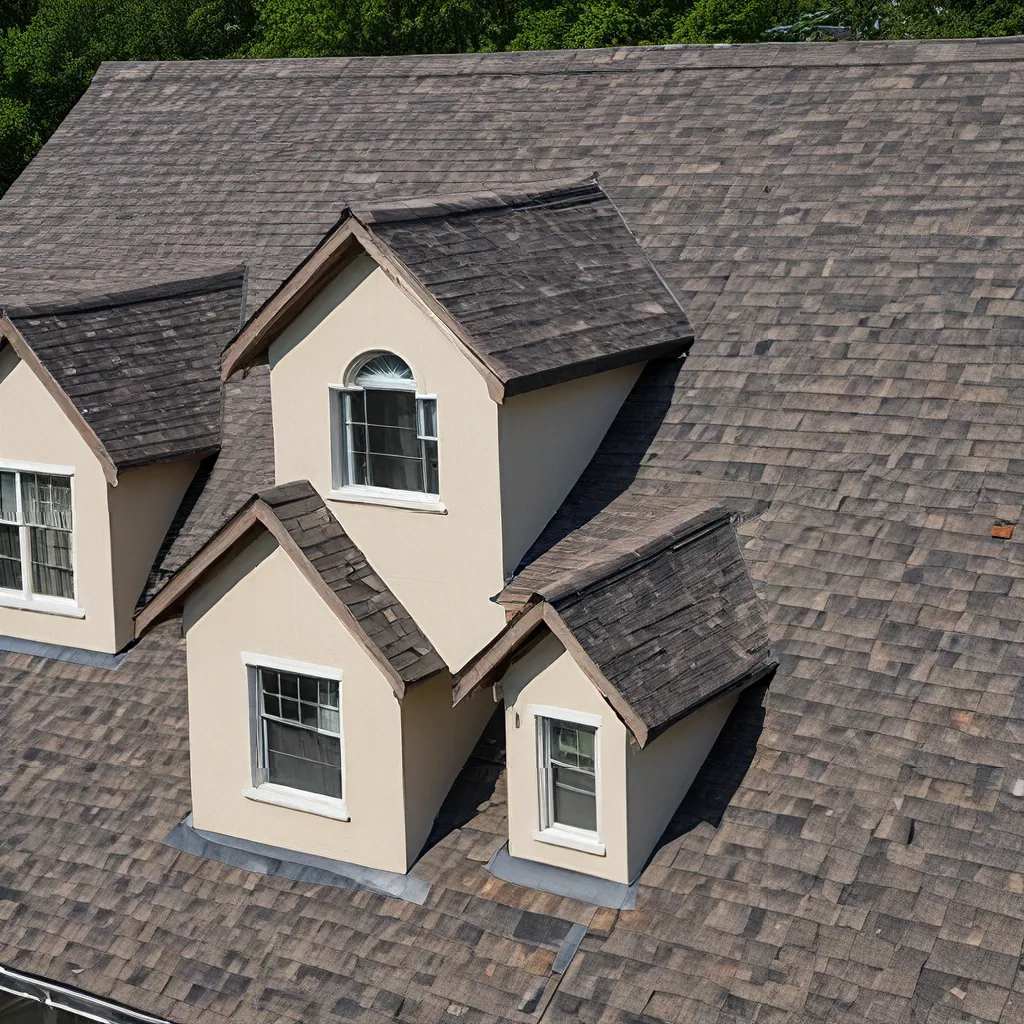
Understanding the Impact of a New Roof on Home Value
As a homeowner, I know that taking care of my roof is one of the most important responsibilities I have. After all, it’s the first line of defense against the elements, protecting my home and everything inside it. But what I didn’t realize until recently is just how big of an impact a new roof can have on my property value.
It turns out that investing in a roof replacement can be a smart move, especially if I’m planning to sell my home in the near future. According to the Remodeling 2019 Cost vs. Value Report, the average American homeowner spends $22,636 on a new asphalt shingle roof, and that investment can increase the home’s value by $15,427 on average – that’s a 68% return!
Now, I know what you’re thinking – that’s a pretty significant investment. But when you consider the alternative, it starts to make a lot of sense. A leaky, damaged, or outdated roof can be a major turnoff for potential buyers – they see it as a costly problem that they’ll have to deal with right off the bat. And let’s be honest, not many people have the time, energy, or budget to take on a full roof replacement after just buying a new home.
Factors that Affect the Value of a New Roof
So, a new roof can be a smart investment, but the actual return you get can vary quite a bit. There are a few key factors that come into play:
Roof Condition: If your current roof is in really bad shape – think leaks, crumbling shingles, and the like – then a replacement is a safer bet. Buyers will see a dilapidated roof as a major red flag and may even try to lowball you on the price to account for the cost of repairs. On the other hand, if your roof is only a few years old and in relatively good condition, a replacement may not move the needle much in terms of home value.
Housing Market Conditions: The strength of the local real estate market can also impact how much value a new roof adds. According to the Remodeling report, a new roof adds the most value (77%) in the New England region, while in the East North Central region, the return is only around 65%. Of course, your specific neighborhood may be quite different from the regional average, so it’s always a good idea to get input from a local real estate agent.
Roofing Materials: The type of roofing material you choose can also affect the return on your investment. While metal roofs are often touted as a way to boost home value, the Remodeling report found that they actually have a lower percentage return (60%) compared to standard asphalt shingles (68%). Designer shingles or premium materials might impress buyers in the right neighborhood, but they may not recoup their full cost everywhere.
Making the Most of Your Roof Replacement
Okay, so I know a new roof can potentially add value to my home, but how do I make sure I’m maximizing that investment? Here are a few tips:
1. Consider Your Neighborhood: When it comes to roofing materials, it’s important to choose something that fits in with the other homes in my area. If my neighbors all have standard asphalt shingles, fancy designer tiles or a metal roof may not be the best investment, even if they’re more visually appealing. Buyers want something familiar and expected.
2. Focus on Quality, Not Luxury: While it might be tempting to splurge on the most expensive, high-end roofing options, that may not be the best use of my budget. According to the National Association of the Remodeling Industry (NARI), homeowners who spent an average of $7,500 on their roof replacement saw a 109% return on investment – significantly higher than the 68% return for those who spent $22,636 on average. The key is finding that sweet spot of quality materials without going overboard.
3. Consider Energy Efficiency: If energy efficiency is a big selling point in my area, I may want to look into a “cool roof” option, which can reduce heating and cooling costs for the new owners. This could be a major draw for eco-conscious buyers and help offset the upfront cost of the roof replacement.
4. Get Professional Advice: When it comes to choosing the right roofing contractor and materials, I’m definitely going to lean on the expertise of the pros. I’ll work with a reputable local roofer to assess the condition of my current roof, provide recommendations on the best products for my home and neighborhood, and ensure the installation is done right.
The Bottom Line
At the end of the day, a new roof isn’t just about protecting my home – it can also be a smart investment that pays off when it’s time to sell. By understanding the factors that impact the value-add of a roof replacement and making strategic choices, I can maximize the return on this important home improvement project.
Of course, every home and neighborhood is unique, so I’ll need to do my due diligence and get advice from local experts. But with the right approach, I’m confident that a roof replacement can be a worthwhile investment that helps me get top dollar when I’m ready to list my home.
So, what are you waiting for? If your roof is looking a little worse for wear, it might be time to start thinking about a replacement. Who knows – it could be the key to unlocking your home’s full potential and getting the best possible price when you sell.